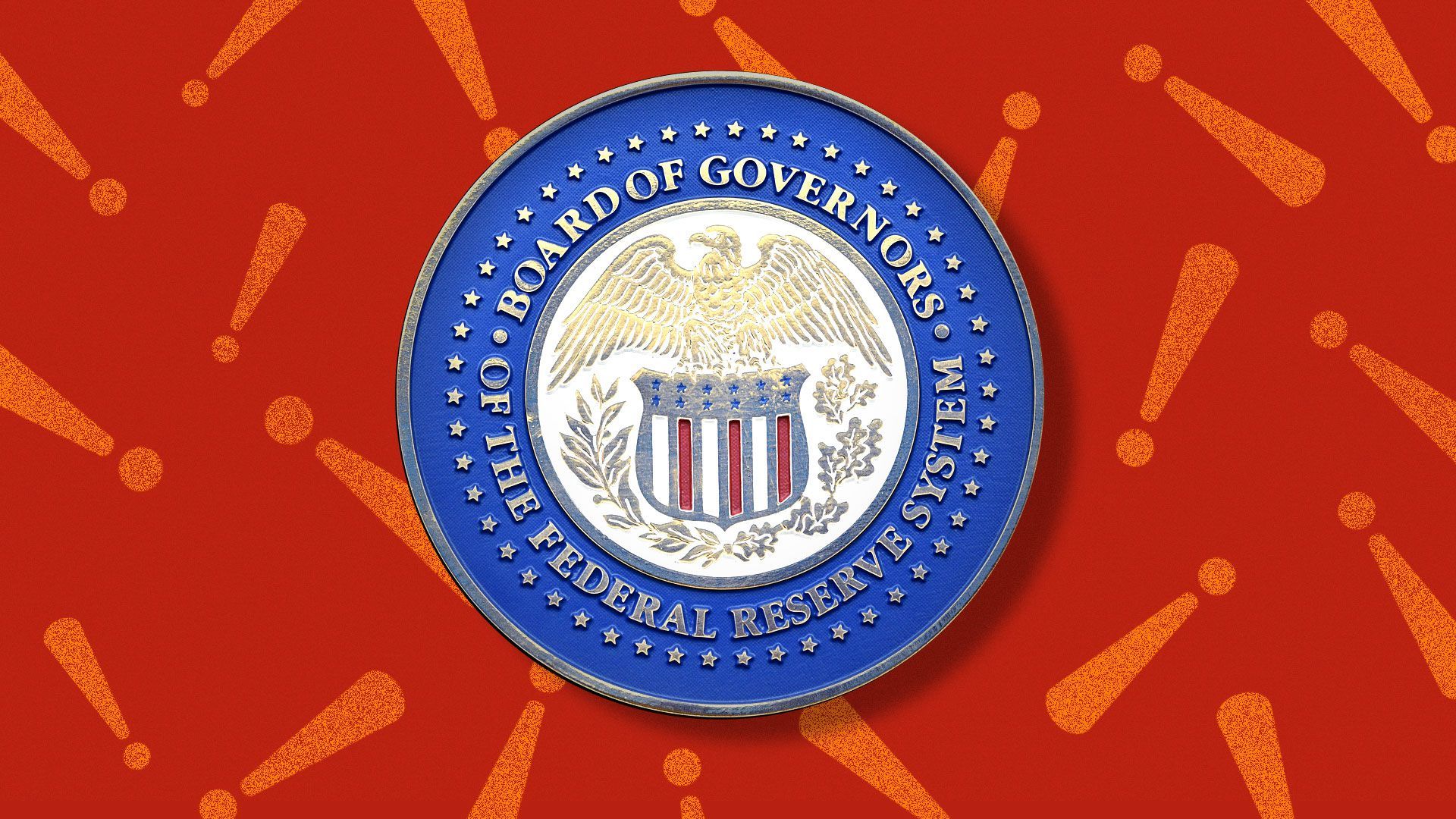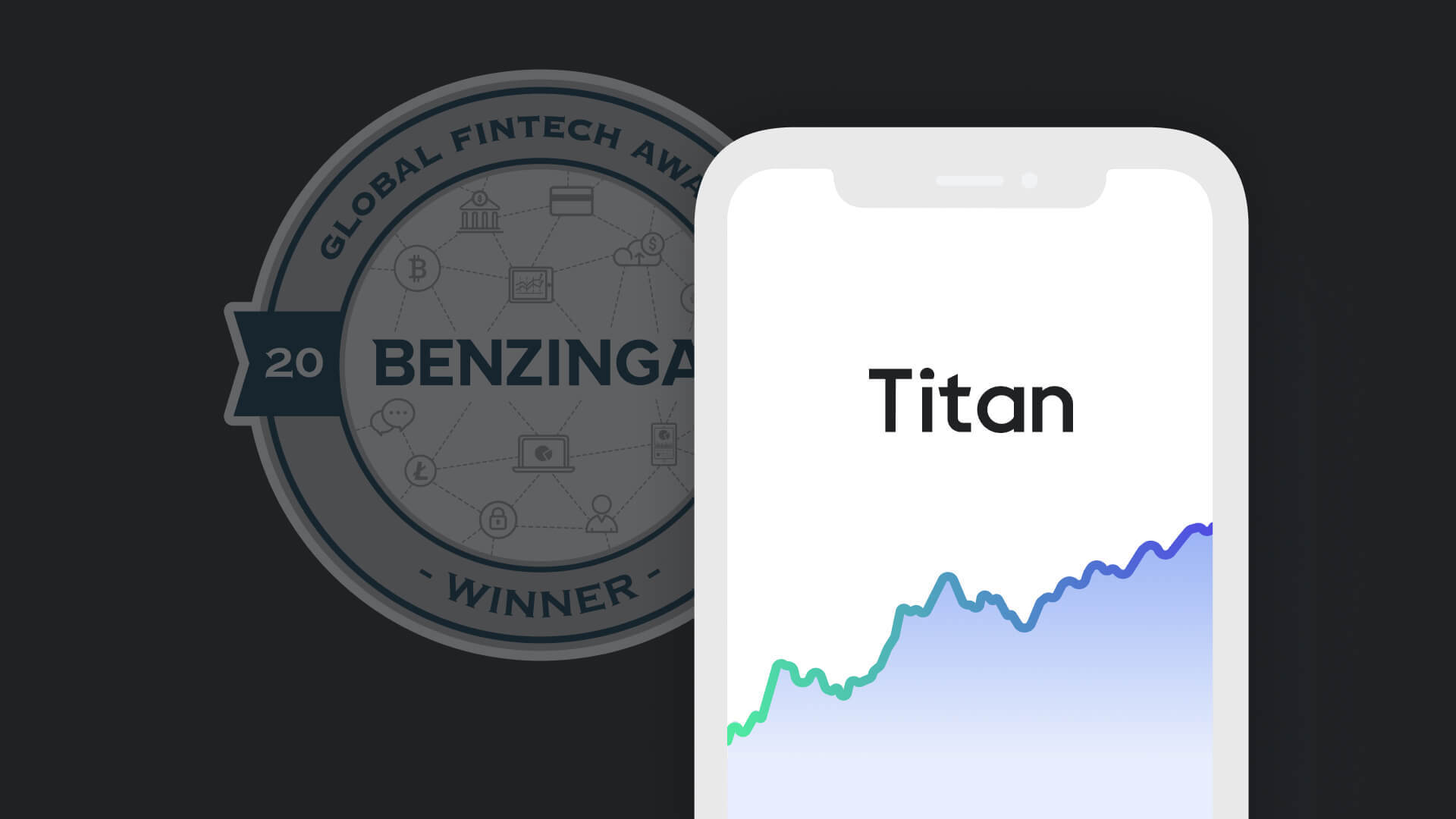| | | | | | | Presented By Titan | | | | Axios Markets | | By Dion Rabouin ·Jan 11, 2021 | | Good morning! Welcome to the week! - Was this email forwarded to you? Sign up here. (Today's Smart Brevity count: 1,079 words, 4 minutes.)
🎙 "A patient waiter is no loser." - See who said it and why it matters at the bottom. | | | | | | 1 big thing: Criticism of the Fed is growing |  | | | Illustration: Eniola Odetunde/Axios | | | | Big names in the world of finance are beginning to call out the Fed and other central banks for their role in ramping up economic inequality and manipulating financial markets — a departure from the praise they received for most of last year. Why it matters: Wall Street was the only pillar of solid support. Most Americans say they don't trust the Fed and politicians look to be taking aim at the central bank for overreaching with its unprecedented actions in March. Driving the news: Mohamed El-Erian, chief economic adviser at $2.8 trillion asset manager Allianz and the former chair of President Obama's Global Development Council, became the latest heavy hitter from the financial industry to issue a rebuke of central banks' policies. What he's saying: "There is abundant evidence that the beneficial economic implications are low, and the costs include irresponsible risk-taking, higher inequality, distortion of financial markets such as negative interest rates and misallocation of resources," El-Erian told Switzerland's The Market. - "I don't think central banks quite realize how much irresponsible risk-taking is going on," he added.
- "In 2010, Ben Bernanke talked about the benefits, costs and risks that come with unconventional policy. He added, the longer you maintain it, the lower the benefits, the higher the costs and risks. This was ten years ago. At that time, Bernanke was thinking of unconventional policy as an economic bridge. Now, it has become a destination."
Say it with your chest: "We have stumbled into very unhealthy co-dependences; co-dependences between central banks and investors, between central banks and debt issuers which are governments and companies, and between central banks and politicians," El-Erian said. - "They are all in this unhealthy co-dependency. It's like a bad marriage: They've ended up relying on each other, and they just don't know how to get out of it."
Don't sleep: Former FDIC chairwoman Sheila Bair was similarly unkind in her assessment of the Fed's actions in a Wall Street Journal editorial last week. - "Capitalism doesn't work unless capital costs something and markets don't work unless they're allowed to rise and fall. The corporate facilities may have originally been justified as extraordinary one-off interventions to help companies maintain operations, but they morphed far beyond this purpose, and distorted capital allocation."
- "The result was a windfall for investors, cheap credit for the uncreditworthy and record-shattering levels of corporate leverage."
Between the lines: Calls for change are even coming from inside the house. Fed presidents, including Atlanta's Raphael Bostic, Boston's Eric Rosengren, San Francisco's Mary Daly and Minneapolis' Neel Kashkari, have all spoken publicly about the Fed's role in worsening inequality. - Kashkari declared in a Financial Times article, "I don't know what the best policy solution is, but I know we can't just keep doing what we've been doing,"
|     | | | | | | Bonus chart: Keep an eye on the yield curve |  Data: U.S. Department of the Treasury; Chart: Andrew Witherspoon/Axios "One of the most under covered stories is what's happening to the U.S. yield curve," El-Erian warns. What's happening: "It's on a consistent move up, and that puts the Fed in a very difficult position, because if it allows the curve to continue to steepen, it can undermine financial stability," he tells The Market. - "If the Fed wants the yield curve to stop steeping, it has to implement yield curve control, or what they like to call yield curve targeting. But yield curve targeting is a huge step in policy."
- "It would distort the U.S. Treasury market completely. So keep an eye on this, because this is starting to get to dangerous levels."
The big picture: Ultra-low Treasury yields are a major factor underpinning the runup in stocks. Experts have warned that the Fed's new stance encouraging inflation risks letting interest rates get out of control. Where it stands: The difference between yields on 10-year Treasury notes and 2-year notes jumped to 1%, its highest since July 2017. |     | | | | | | 2. Catch up quick | | The House will proceed with legislation to impeach President Trump, Speaker Nancy Pelosi said. (AP) Samsung Electronics says it will invest more than $30 billion in its semiconductor business this year. (Nikkei) Ant Group will reorganize much of its operations as a financial holding company at the urging of Chinese regulators, an unnamed source says. (Nikkei) Goldman Sachs, Citi, Morgan Stanley and JPMorgan say they plan to pause all political contributions. (Bloomberg) The U.S. will remove restrictions on how it interacts with Taiwan, Secretary of State Michael Pompeo said in a statement. (Bloomberg) |     | | | | | | A message from Titan | | Titan: A premier investment manager for millennials | | |  | | | | Need help with investing through COVID? Titan is the first premier investment manager for millennials. Titan was awarded 2020 advisor of the year by U.S News and ranked #1 out of 60+ advisors for returns in 2020. Download the Titan app to get invested in our award-winning strategies. | | | | | | 3. Foreign investors doubled Chinese bond purchases in 2020 |  Reproduced from the Institute of International Finance; Chart: Axios Visuals Despite the pandemic ravaging investor confidence early in 2020, U.S. and European investors flocked to Chinese debt, pushing the level of foreign investment in China's bonds to a record high and more than double its 2019 level, data from the Institute of International Finance show. What happened: Chinese government and policy bank bonds were added to the Bloomberg Barclays Global Aggregate Index beginning in April 2019 and in September JPMorgan announced that they would add China's government bonds to its highly followed EM global bond index. - China's weight in the index reached 10% in November.
Between the lines: Total inflows to emerging markets declined by just $48 billion from 2019's levels, "an impressive reading considering that the COVID-19 shock meant one of the deepest and most violent outflow episodes on record," IIF says in a report. Watch this space: The fourth quarter of 2020 saw $179.6 billion of EM inflows, the strongest quarter for the asset class since just before the "taper tantrum" in 2013, which caused significant EM outflows for years. Why you'll hear about this again: U.S. lawmakers have worked to restrict American investment in China by imposing regulations on Chinese companies' equity offerings. - However, as China's debt, which offers yields at more than 3% (about three times comparable U.S. offerings), becomes more mainstream, more funds will likely flow into the country.
|     | | | | | | 4. Analysts ramp up their Q4 earnings targets |  Reproduced from FactSet; Chart: Axios Visuals Equity analysts raised their earnings estimates for companies in the S&P 500 by 2.3% during the fourth quarter, to $36.93 from $36.10, as optimism continues to rise. What it means: Q4 was the second straight quarter in which Wall Street analysts have raised their earnings expectations, a reversal of the typical trend. No cap: Q4 was just the fourth quarter since Q4 2010 in which EPS estimates have increased during the quarter. By the numbers: "During the past five years, the average decline in the bottom-up EPS estimate during a quarter has been 4.5%," FactSet senior earnings analyst John Butters points out in a note to clients. - "During the past ten years (40 quarters), the average decline in the bottom-up EPS estimate during a quarter has been 4.2%. During the past fifteen years (60 quarters), the average decline in the bottom-up EPS estimate during a quarter has been 5.2%."
Yes, but: "[I]t should be noted that analysts made substantial cuts to EPS estimates for Q4 during the second and third quarters (March 31 to September 30). During this period, the Q4 bottom-up EPS estimate declined by 17.4% (to 36.10 from $43.73)." |     | | | | | | A message from Titan | | "We founded Titan to even the playing field" - Joe Percoco, Titan CEO | | |  | | | | "Everyday investors are given two options: fend for themselves on Robinhood or be relegated to a passive ETF. Having worked at some of the most successful hedge funds in the world we knew there was a third way. That's why we started Titan." Download the Titan app to get invested in our award-winning strategies. | | | | Thanks for reading! Quote: "A patient waiter is no loser." Why it matters: On Jan. 11, 1838, Samuel Morse and Alfred Vail held the first public demonstration of the telegraph machine, which sent messages using dots and dashes, at Speedwell Ironworks in Morristown, New Jersey. - The phrase was written by Vail's father who had grown impatient with his son's work developing the machine he believed would revolutionize communication.
| | | | Axios thanks our partners for supporting our newsletters.
Sponsorship has no influence on editorial content. Axios, 3100 Clarendon Blvd, Suite 1300, Arlington VA 22201 | | | You received this email because you signed up for newsletters from Axios.
Change your preferences or unsubscribe here. | | | Was this email forwarded to you?
Sign up now to get Axios in your inbox. | | | | Follow Axios on social media:    | | | | | |
Post a Comment
0Comments